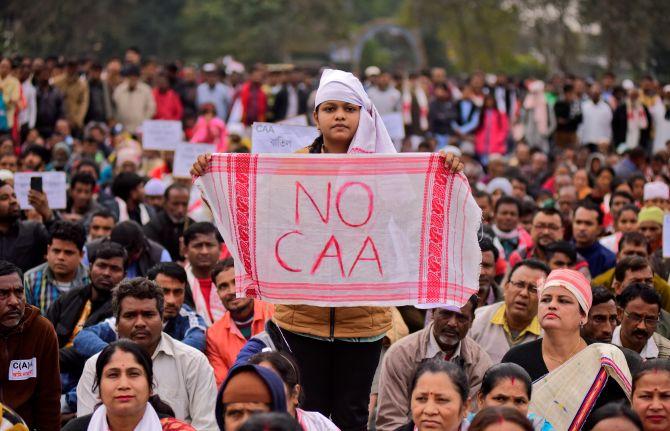A US Congress-constituted quasi-judicial body on Wednesday asked the Joe Biden Administration to designate four nations, including India, as "countries of particular concern", alleging that religious freedom conditions there in 2020 continued their negative trajectory.

The annual report of the US Commission for International Religious Freedom (USCIRF) also recommended the state department to redesignate 10 nations as "countries of particular concern" (CPC). These are Burma (Myanmar), China, Eritrea, Iran, Nigeria, North Korea, Pakistan, Saudi Arabia, Tajikistan and Turkmenistan.
In addition to India, USCIRF in its non-binding report recommended the state department to add three more countries to the list: Russia, Syria and Vietnam.
"Designate India as a 'country of particular concern,' or CPC, for engaging in and tolerating systematic, ongoing, and egregious religious freedom violations, as defined by the International Religious Freedom Act (IRFA)," USCIRF said in its report.
India has in the past said that the American body on international religious freedom has chosen to be guided only by its biases on a matter on which it has no locus standi.
"Our principled position remains that we see no locus standi for a foreign entity to pronounce on the state of our citizens' constitutionally protected rights," the ministry of external affairs had said last year.
"We have a robust public discourse in India and constitutionally mandated institutions that guarantee protection of religious freedom and rule of law," the MEA had said.
The USCIRF's recommendations on India, unlike other countries, are not unanimous. USCIRF Commissioner Johnnie Moore has officially registered his dissent with such a recommendation, arguing that India should not be designated as CPC.
"Of all the countries in the world, India should not be a 'country of particular concern,' or CPC. It is the world's largest democracy, and it is governed by a pristine Constitution. It is diversity personified and its religious life has been its greatest historic blessing,” Moore said.
"Yet, India does seem to be at a crossroads. Its democracy -- still young and freewheeling -- is creating through the ballot box difficult challenges for itself. The answer, of course, is for India's institutions to draw upon their rich history to protect their values,” he said in his dissent note.
"India must always resist allowing political and intercommunal conflict to be exacerbated by religious tensions. India's government and people have everything to gain and absolutely nothing to lose from preserving social harmony and protecting the rights of everyone. India can. India must,” Moore said.
Established by the US government in 1998 after the inaction of the International Religious Freedom Act, recommendations of USCIRF are non-binding on the state department. Traditionally, India does not recognise the view of USCIRF. For more than a decade, it has denied visas to members of the USCIRF.
In the India section of the report, USCIRF urged the state department to impose targeted sanctions on individuals and entities responsible for severe violations of religious freedom by freezing those individuals' or entities' assets and barring their entry into the US.
It urges the US Congress to continue to raise religious freedom concerns in the US-India bilateral relationship and highlight concerns through hearings, briefings, letters, and congressional delegations.
"In early 2020, the passage of the religiously discriminatory Citizenship (Amendment) Act (CAA) -- a fast track to citizenship for non-Muslim migrants from Afghanistan, Bangladesh, and Pakistan residing in India -- led to nationwide protests against the CAA and spurred state and nonstate violence, largely targeting Muslims,” it said.
The Indian government has maintained that the CAA is an internal matter of the country and stressed that the goal is to protect the oppressed minorities of neighbouring countries.
The report noted that in September, the Indian Parliament amended the Foreign Contribution Regulation Act (FCRA) to increase restrictions on non-governmental organisations (NGOs), further stifling civil society and forcing religious organisations and human rights organisations, including those advocating for religious freedom, to shut down. Amnesty International India closed operations in October after authorities froze its bank account, it said.
India's home ministry has said that Amnesty International had received permission under the Foreign Contribution (Regulation) Act (FCRA) only once and that too 20 years ago (on December 19, 2000). Since then, it said, the organisation, despite its repeated applications, has been denied FCRA approval by successive governments since as per law it is not eligible for it.
The USCIRF also alleged that in conjunction with a proposed National Register of Citizens (NRC) requiring all residents to provide documentation of citizenship, the CAA could subject Muslims, in particular, to “statelessness, deportation or prolonged detention.”
India has said that the updation of the NRC in Assam is an "entirely internal” process carried out at the direction and under the supervision of the Supreme Court.











 © 2025
© 2025